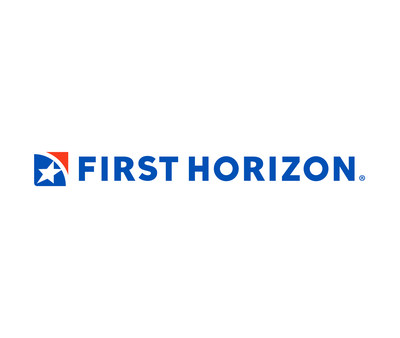Louisiana First Horizon Foundation Supports Blue Carbon Progress
First Horizon Corporation announced a financial commitment to develop a Blue Carbon Database for coastal habitats in the U.S. Southeast and Gulf of Mexico. The partnership, including the ETSU Research Corporation and S.C. Sea Grant Consortium, aims to create a searchable GIS database featuring shovel-ready projects for Blue Carbon investment. Expected completion is late-2023. The initiative is projected to enhance carbon sequestration and bolster local community resilience and biodiversity. First Horizon seeks to leverage its financial expertise to support nature-based solutions.
- Financial investment in Blue Carbon Database development.
- Collaboration with reputable partners: ETSU Research Corporation and S.C. Sea Grant Consortium.
- Potential for increased carbon sequestration and community benefits.
- None.
MEMPHIS, Tenn., Dec. 7, 2022 /PRNewswire/ -- Louisiana First Horizon Foundation announced today a financial pledge for the development of a Blue Carbon Database for the U.S. Southeast and northern Gulf of Mexico coastal habitats. The database will include up-to-date information on the status of potential coastal Blue Carbon shovel-ready parcels.
First Horizon is partnering with the ETSU Research Corporation and S.C. Sea Grant Consortium to develop the database which will focus on areas within the U.S. south Atlantic (South Carolina, Georgia, and Florida) and northern Gulf of Mexico (Louisiana). As other partners join, the database could be expanded to include other coastal areas.
S.C. Sea Grant will build the database through meeting landowners and natural resource managers, scoping potential sites, discussing opportunities with blue carbon practitioners, and compiling spatial information within a searchable web-based Geographic Information System (GIS) interface. Once completed, slated for late-2023, the publicly available database will identify potential pathways for private sector investment in coastal natural resources via Blue Carbon crediting.
"With our footprint surrounding many larger waterways and along coastlines, we believe investing capital and time in Blue Carbon advancement provides numerous benefits to First Horizon and the communities that we serve," said Mary Lakey, Head of Environmental, Social and Governance for First Horizon. "The ability to identify shovel-ready projects surrounding coastal wetlands will not only enhance carbon sequestration, but also provide co-benefits to local communities such as resiliency and biodiversity, creating a win-win."
Earlier this year, First Horizon Bank hosted a Blue Carbon Roundtable bringing together leaders in the scientific and private sectors to learn and discuss current challenges and advance understanding of emerging climate solutions. The database, as well as a Blue Carbon Working Group, came to fruition as a result of the roundtable collaboration.
"Our vision is to create a sharable tool that provides a regional inventory of potential blue carbon projects as an access point for land managers, restoration practitioners, regulators, investors and coastal scientists to interact. This tool will help identify projects that advance investments in coastal natural resource protection and stewardship. Some of these projects may allow for carbon offsets, which are going to be needed to support net zero commitments across the U.S." said Brita Jessen, Interdisciplinary Research and Partnerships Lead with S.C. Sea Grant Consortium.
"We continue to look for tangible ways we can enact change through important partnerships and support of nature-based projects and science-based solutions," Lakey added. Our status as a trusted financial institution ideally positions us to serve as a catalyst for such collaboration and we are cognizant that these efforts can create benefits for communities around the U.S."
Coastal wetlands have been the focus of conservation and restoration efforts for over a century with the goal of preserving biodiversity and generating benefits to local communities. More recently, coastal wetlands have also been recognized for their carbon storage and sequestration value. The wetlands sequester billions of tons of carbon from our atmosphere at concentrations up to five times greater than terrestrial forests. The carbon sequestered and stored in these coastal wetlands is called "Blue Carbon".
As part of the IBERIABANK/First Horizon merger-of-equals, the Louisiana First Horizon Foundation was founded in 2020 to meet community needs in the state of Louisiana.
First Horizon Corp. (NYSE: FHN), with
FHN-G
![]() View original content to download multimedia:https://www.prnewswire.com/news-releases/louisiana-first-horizon-foundation-supports-blue-carbon-progress-301697492.html
View original content to download multimedia:https://www.prnewswire.com/news-releases/louisiana-first-horizon-foundation-supports-blue-carbon-progress-301697492.html
SOURCE First Horizon Corporation
FAQ
What is First Horizon's recent financial pledge?
Who are the partners involved in the Blue Carbon Database project?
When is the Blue Carbon Database expected to be completed?
How will the Blue Carbon Database benefit local communities?








